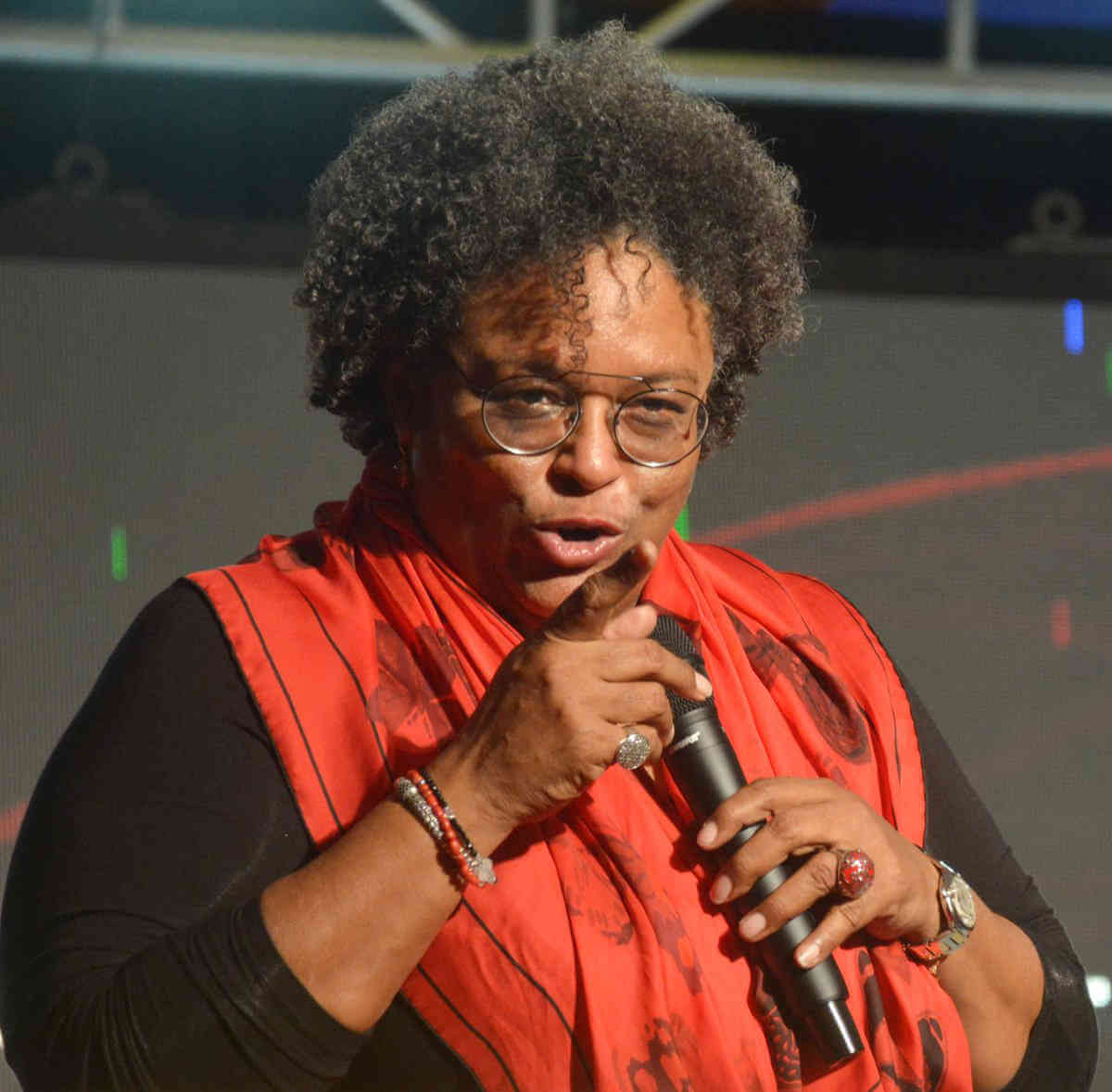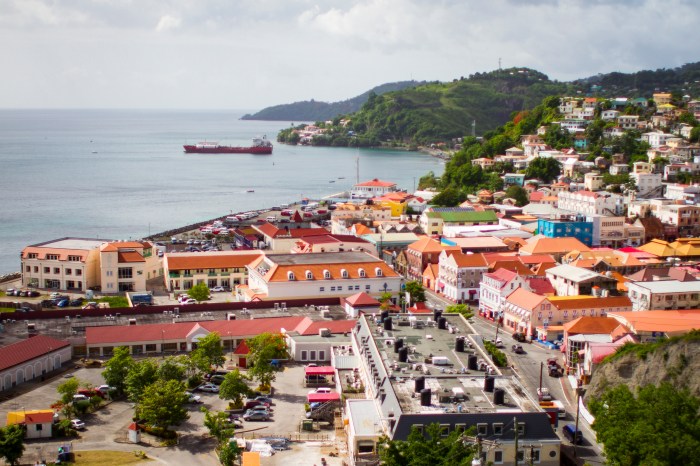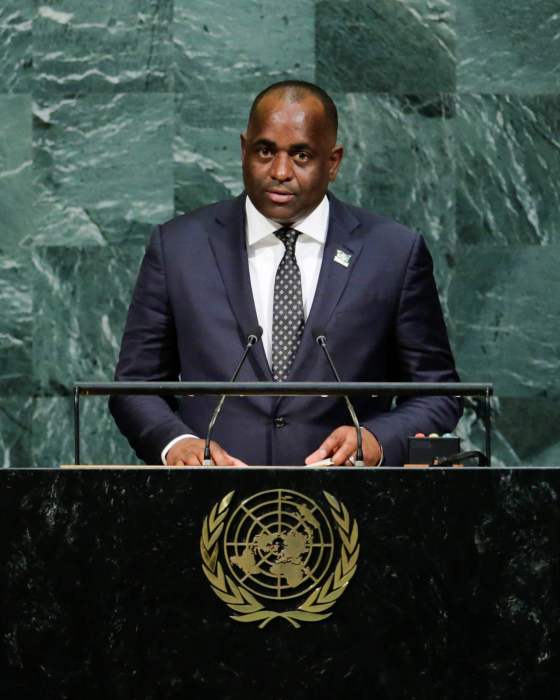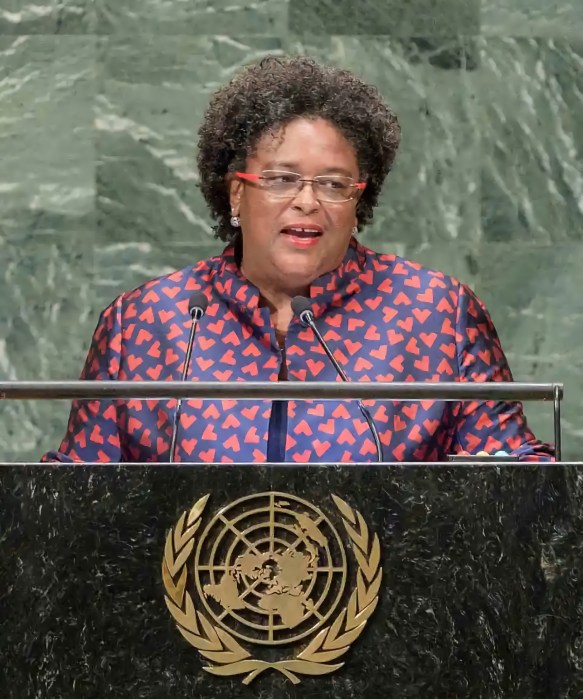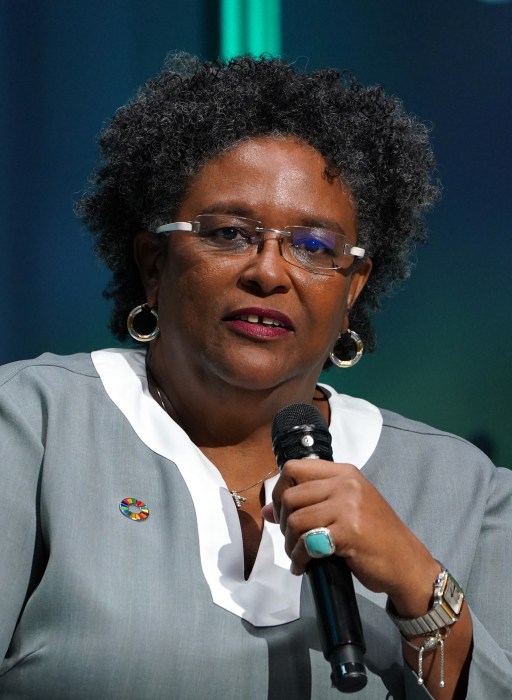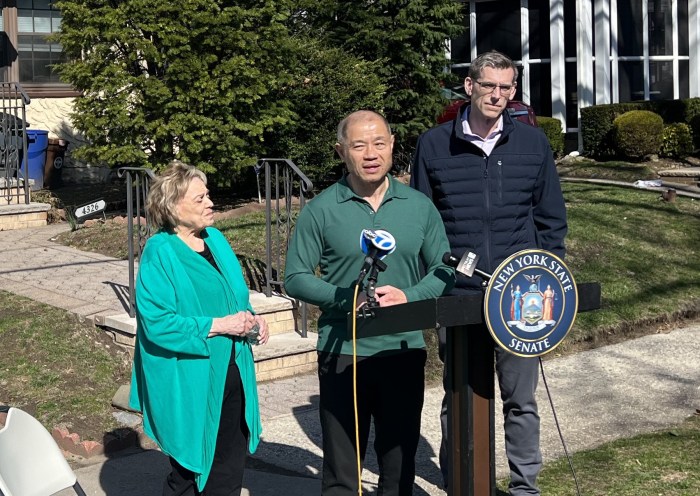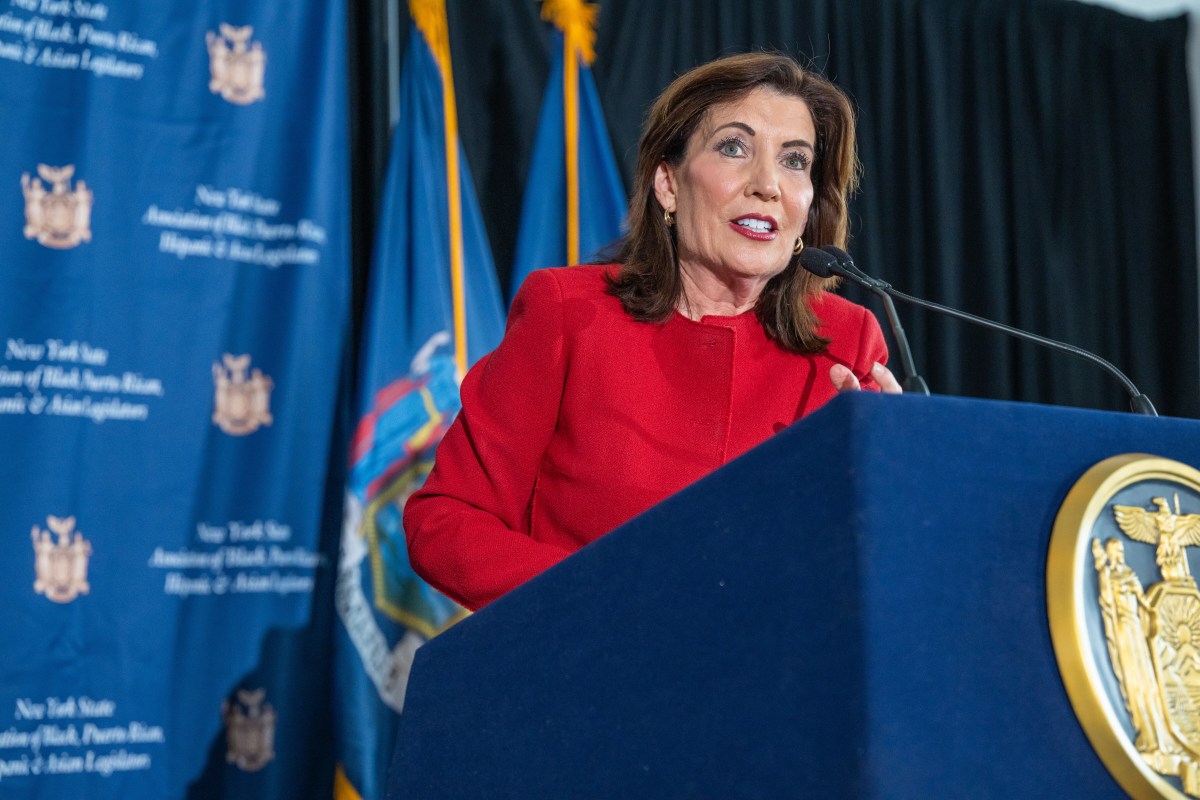Barbados
Prime Minister Mia Mottley recently said that there will be no new taxes in the 2024 national budget she presented to Parliament.
“It is a budget that will secure our Barbados of today and our Barbados for tomorrow. That security is anchored on our achievements against many odds so far, on the clear improvements we are seeing, and on the bright light of our rising star, which is the result of our joint effort,” Mottley told legislators. The Barbados government had presented to Parliament the estimates for total expenditure for the financial year 2024-2025, at BDS$4,667.7 million, with BDS$3,422.9 million representing current expenditure and BDS$1,244.8 million representing capital expenditure and amortization.
She said the fiscal package illuminates a future prosperity in which all Barbadians can share, and “a country in which our pride remains fully justified, because … it is built on our industry.”
Mottley said all Barbadians, whether at home or abroad, will see how their efforts can further contribute to the shared national prosperity.“The Barbados star will continue to rise through the collective effort of all of our people, and together, sir, we will fully emerge from the period of deep economic and financial abyss, with its political origins, of course, in the lost decade of 2008 to 2018, from the social and economic tentacles of COVID-19 pandemic, and from the supply chain shackled by the Russia-Ukraine war, and its consequences and now compounded by the war in Gaza.”
She said Barbados can now go into a period of increased social stability and heightened and sustainable growth, but, insisted “we must work together, and we must plan together.” She said, while “there will be no new taxes … I am telling you up front that I will warn you that there will be some adjustments during the course of this year of a few rates that we will need the public to be able to bear if our services that depend on those rates are to keep up with the kind of service that Barbadians want.”
Caribbean
Caribbean women are being asked to participate in the United Nations “We the Women Global Survey” that is intended to capture the perspectives of women on global issues they care about most, and how it can be addressed.
The survey which was launched on International Women’s Day is currently being introduced to thousands of women around the world, under the slogan “Take 10 minutes to change the world – Every voice counts we need yours.” The survey is anonymous and is also available in multiple languages. The UN said that women in all member states and from different geographic areas, age groups and educational backgrounds are urged to participate. With the upcoming SIDS 4 Conference which is scheduled for Antigua and Barbuda in May, Caribbean women are also encouraged to add their voices to the conversation.
The survey questions women about their priorities, fears, hopes and vision for the future and how global leaders can collectively support them to address issues, challenges, and opportunities.The UN said results will inform key decision-makers and contribute to the Pact for the Future to be adopted during the September 2024 Summit of the Future.
The We the Women campaign was launched in September 2023 and is part of the Women Rise for All Initiative, a global network of women leaders, started by the UN Deputy Secretary General in 2020 to recognize the transformational leadership of women in response to COVID-19 and the SDGs.
Guyana
United States Ambassador to Guyana Nicole D Theriot welcomed a “deeper US-Guyana security relationship,” as Washington announced additional funding to assist the Caribbean Community (CARICOM) country better combat crime in the Caribbean.
At the International Narcotics and Law Enforcement (INL) signing ceremony, the US diplomat said that she welcomed the deepening of the US partnership with Guyana under the Caribbean Basin Security Initiative (CBSI) to address shared security challenges and to support the government’s objectives of building an inclusive, transparent, and more efficient criminal justice system.
She said under CBSI, the US Department of State’s INL partners with like-minded policymakers to deliver holistic, tailored, and strategic capacity-building programs in Guyana and across the region to help disrupt organized crime and to promote citizen security and criminal justice institutional reforms.
She said that the INL’s partnership with Guyana is based on mutual respect, collaboration, and friendship, adding, “Most importantly, our work together is rooted in our shared commitment to the rule of law, democracy, and human rights.”
Haiti
Gangs attacked two upscale neighborhoods in Haiti’s capital in an early morning rampage that left at least a dozen people dead.
Gunmen ransacked homes in the communities of Laboule and Thomassin before sunrise, forcing residents to flee the area. The neighborhoods had previously remained mostly peaceful despite a surge in violent gang attacks across the capital of Port-au-Prince.The most recent attacks raised concerns that gang violence would not stop despite Prime Minister Ariel Henry recent announcement that he would resign once a transitional presidential council is created, a move that gangs had been demanding.
Gangs have long opposed Henry, saying he was never elected by the people as they blame him for deepening poverty. Haiti’s power company also announced that four substations in the capital and elsewhere “were destroyed and rendered completely dysfunctional.” As a result, swaths of Port-au-Prince were without power, including the Cite Soleil slum, the Croix-des-Bouquets community and a hospital. The company said criminals also seized important documents, cables, inverters, batteries and other items.
As gang violence continues unabated, Caribbean leaders have been helping with the creation of a transitional council.
Meanwhile, the deployment of a UN-backed Kenyan police force to fight gangs in Haiti has been delayed, with the East African country saying it would wait until the transitional council is established.
Jamaica
A memorandum of understanding has been signed between the non-profit organization Mustard Seed Communities (MSC) Jamaica and HaitiChildren, to provide accommodation for 59 severely disabled orphans and 13 caregivers from Haiti. The group from Haiti will be housed at the newly built Ephesus Village, Jacob’s Ladder, in the town of Moneague, in the northern parish of St Ann when they arrive. MSC said that the arrangement is initially for two years and funding will be provided by HaitiChildren’s various established donors. Executive Director of Mustard Seed Communities International, Fr. Garvin Augustine, said following a series of meetings with government agencies, MSC was granted permission for the children to enter Jamaica legally and to get the necessary care in a safe environment.
Founder and CEO of the nonprofit HaitiChildren, Susie Krabecher, approached the leaders of Mustard Seed in the wake of the gang warfare which has disrupted the lives of the Haitian people, especially the most vulnerable in the society.
She said, “These children, who had been living under the care of HaitiChildren, were forced to leave the organization’s facility when growing unrest made it unsafe for them to continue living there. This resulted in the children being left without access to vital supplies and urgent medical attention”.
Suriname
The Suriname government says it will develop policies to strengthen the Dutch-speaking Caribbean Community (CARICOM) country’s position as one of the three “carbon negative countries” with the least emissions of harmful gases into the atmosphere.
Speaking at a ceremony where two companies introduced electric vehicles, President Chandrikapersad Santokhi said he has instructed the minister of Finance and Planning to develop a policy for the import of vehicles into the country.
“Before it became known that electric cars would be introduced, I instructed the Minister of Finance and Planning to develop policy. That we have to give incentives to these vehicles, give incentives to the imports.
“And if it were up to me, it should enter the country completely free of import duties. I hope the policy develops quickly. We must encourage the use of electric cars and it must remain affordable for society. Ultimately, we contribute to the protection and conservation of the planet.”
Santokhi said he would be visiting China, where he wants to “enter into a new collaboration to obtain funds with which we can bring more EVs to Suriname.”
China currently has the largest EV market and is also home to the most manufacturers. The American Tesla is also produced in China.
— Compiled by Devika Ragoonanan


